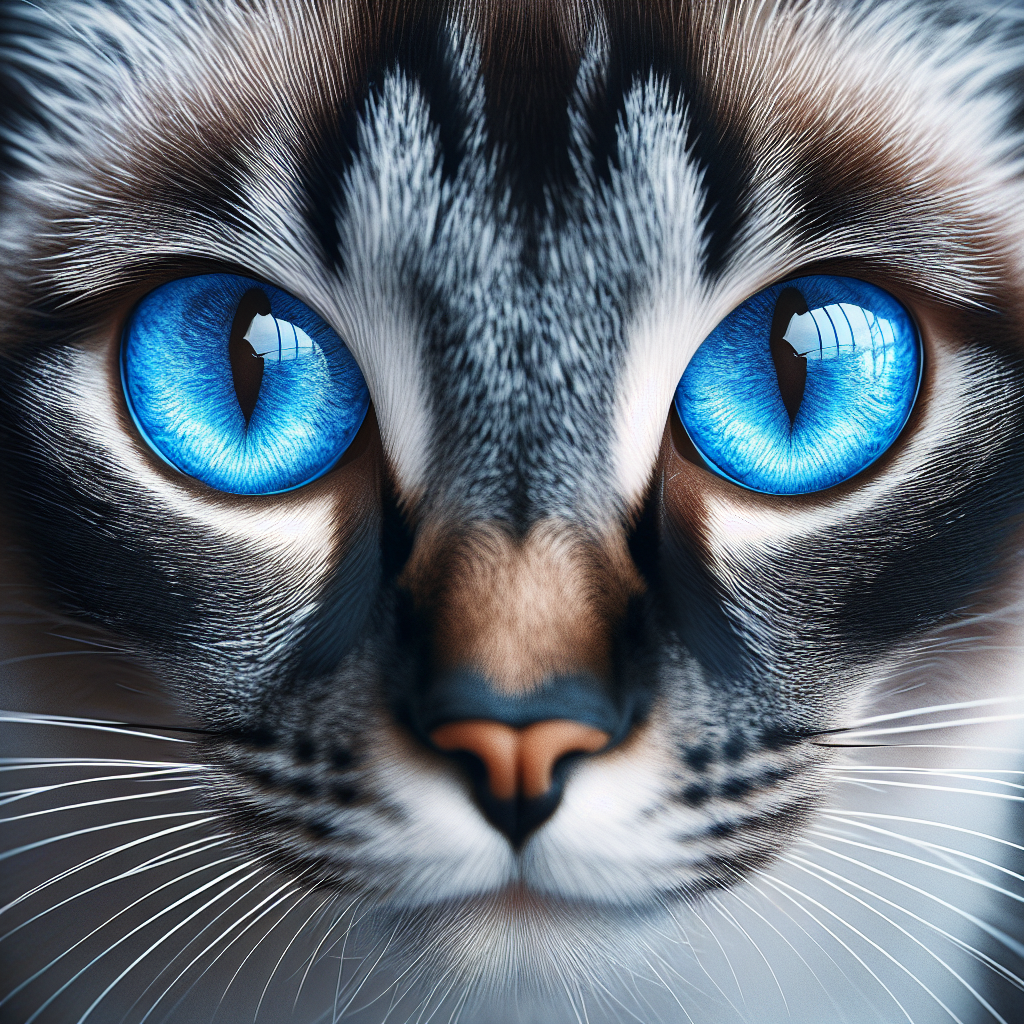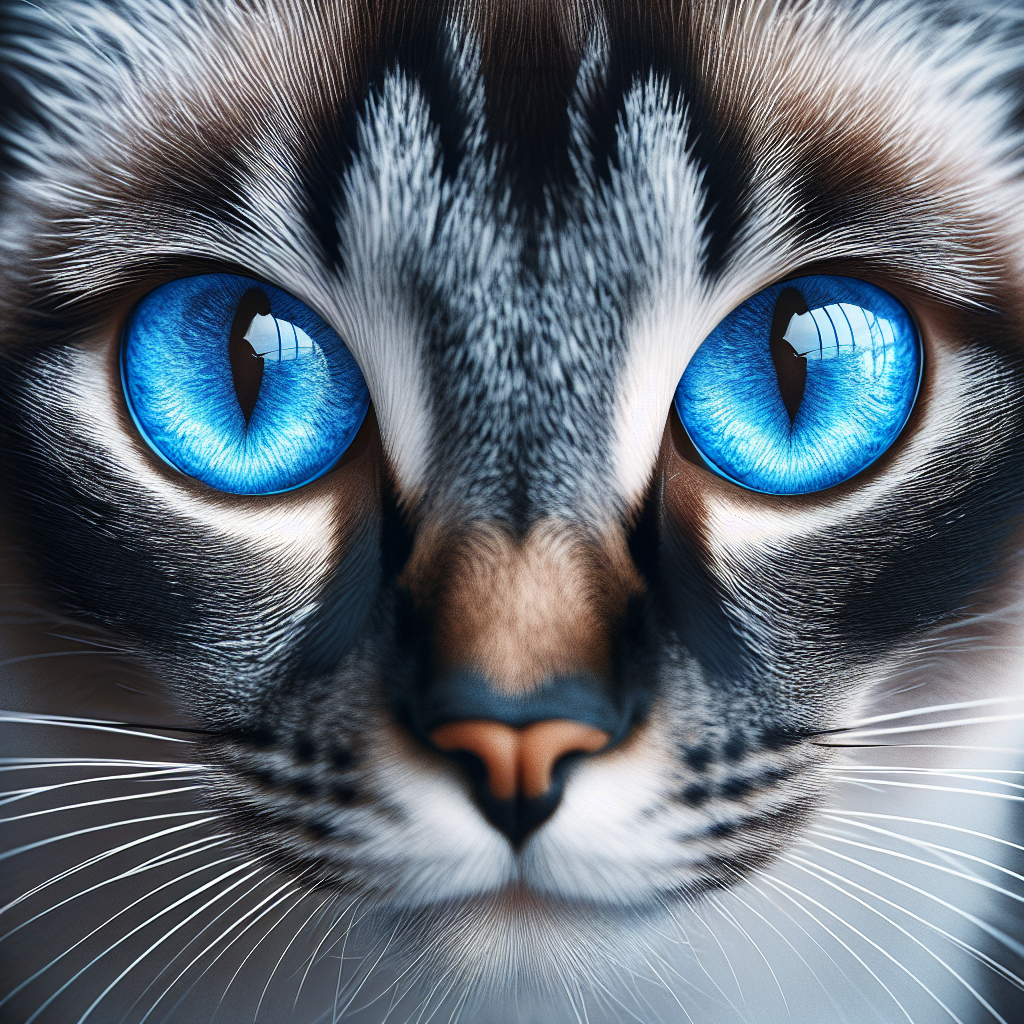Siamese Tabby Cats have a distinct and captivating beauty, with their striking blue eyes and distinctive patterned coats. However, have you ever wondered how long these unique felines actually live? Well, the lifespan of Siamese Tabby Cats can vary depending on various factors including genetics, lifestyle, and overall health. In general, these lovable companions have an average lifespan of 12 to 15 years, but with proper care, they can live even longer, bringing joy and companionship for many years to come.
Genetic Factors
Coloration
Siamese tabby cats are known for their distinctive coat colors and patterns. These cats typically have a combination of a Siamese colorpoint pattern and tabby markings. The coloration of a Siamese tabby cat is determined by its genetic makeup. These cats inherit genes that dictate the intensity of their coat colors, such as the deep blue eyes that are characteristic of Siamese cats. The genes responsible for coloration can also impact the overall health and lifespan of a Siamese tabby cat.
Breed Specific Health Issues
Like all cat breeds, Siamese tabby cats can be prone to certain health issues that are specific to their breed. These health issues are often a result of genetic factors that are inherent within the breed. Siamese tabby cats may be more susceptible to respiratory conditions, such as asthma and bronchial disease. These cats may also be prone to gastrointestinal problems, such as inflammations and digestive issues. Additionally, dental disease is a common health issue seen in Siamese tabby cats. It is important to be aware of these breed-specific health concerns and take appropriate measures to ensure the well-being and longevity of your Siamese tabby cat.
Environmental Factors
Diet and Nutrition
Proper diet and nutrition play a crucial role in the lifespan of Siamese tabby cats. Feeding your cat a nutritionally balanced diet is essential for their overall health and well-being. Siamese tabby cats may have specific dietary requirements due to their breed-specific health issues, such as gastrointestinal sensitivities. Consulting with a veterinarian can help you determine the best diet plan for your cat. It is important to provide them with high-quality cat food that meets their nutritional needs and avoids ingredients that may trigger allergies or digestive issues.
Exercise and Activity
Regular exercise and physical activity are important for maintaining the health and longevity of Siamese tabby cats. These cats are known to be active and playful, and engaging them in daily exercise can help prevent obesity and keep them mentally stimulated. Interactive toys, scratching posts, and climbing trees can provide them with the necessary exercise and entertainment they need. Furthermore, playtime sessions with their human companions can strengthen the bond between the cat and their owner, contributing to their overall well-being and lifespan.
Stress and Anxiety
Siamese tabby cats can be sensitive to their environment and may experience stress and anxiety. Stressors such as changes in routine, loud noises, or unfamiliar situations can affect their health and longevity. It is important to provide a safe and calm environment for your Siamese tabby cat, with plenty of hiding spaces and areas where they can retreat to when they feel overwhelmed. Additionally, engaging them in activities that promote mental stimulation, such as puzzle toys or interactive playtime, can help alleviate stress and anxiety.

Healthcare and Wellness
Veterinary Care
Regular veterinary care is essential for ensuring the health and longevity of your Siamese tabby cat. Routine check-ups, vaccinations, and preventative care are important aspects of maintaining their well-being. A veterinarian can perform a comprehensive physical examination, monitor any breed-specific health concerns, and provide necessary treatments or medications. Regular veterinary visits contribute to the early detection and prevention of potential health issues, increasing the chances of a longer and healthier lifespan for your Siamese tabby cat.
Vaccinations
Vaccinations play a vital role in protecting Siamese tabby cats from various diseases and infections. Following the recommended vaccination schedule provided by your veterinarian is crucial for safeguarding your cat’s health. Vaccinations against diseases such as rabies, feline distemper, and feline leukemia virus can help prevent serious illnesses and prolong their lifespan. It is important to keep track of your cat’s vaccination records and ensure they receive regular booster shots to maintain their immunity.
Parasite Prevention
Parasite prevention is another important aspect of healthcare for Siamese tabby cats. These cats can be susceptible to parasites such as fleas, ticks, and intestinal worms. Regularly administering flea and tick preventatives, as well as deworming medications prescribed by your veterinarian, can help protect your cat from these parasites. Regular check-ups and preventative treatments can contribute to their overall health and well-being, ensuring a longer lifespan.
Spaying and Neutering
Spaying or neutering your Siamese tabby cat is an important decision that can have a significant impact on their health and lifespan. Spaying, the removal of the female cat’s reproductive organs, can prevent certain health issues such as uterine infections and mammary tumors. Neutering, the removal of the male cat’s testes, can help prevent testicular cancer and reduce the risk of certain behavioral problems. It is recommended to consult with your veterinarian to determine the appropriate time for spaying or neutering your Siamese tabby cat.
Common Health Issues
Respiratory Conditions
Siamese tabby cats are more susceptible to respiratory conditions compared to other breeds. These conditions may include asthma, bronchial disease, and upper respiratory infections. Symptoms of respiratory issues can range from coughing and wheezing to difficulty breathing. If you notice any signs of respiratory distress in your Siamese tabby cat, it is important to seek veterinary care promptly. With proper treatment and management, these respiratory conditions can be controlled, improving the cat’s quality of life and extending their lifespan.
Gastrointestinal Problems
Gastrointestinal issues are commonly observed in Siamese tabby cats. These cats may be prone to inflammatory bowel disease, irritable bowel syndrome, or food allergies. Symptoms of gastrointestinal problems can include vomiting, diarrhea, or changes in appetite. It is important to provide a balanced and easily digestible diet to minimize the risk of gastrointestinal issues. Consulting with a veterinarian can help determine the appropriate diet and any necessary treatments to manage these conditions, promoting a longer and healthier life for your Siamese tabby cat.
Dental Disease
Dental disease is a common health issue in Siamese tabby cats, as in many other cat breeds. Without proper dental care, plaque and tartar can build up, leading to gum disease, tooth decay, and potential tooth loss. Regular brushing of their teeth, providing dental treats or toys, and scheduling professional dental cleanings with a veterinarian can help prevent dental disease and maintain good oral health. Taking care of their dental hygiene can significantly contribute to their overall well-being and extend their lifespan.

Age and Aging
Kittenhood and Development
During the kittenhood stage, Siamese tabby cats go through important developmental milestones that shape their health and behavior later in life. Kittens require proper nutrition, frequent check-ups, and vaccinations to ensure healthy growth and development. It is important to provide a safe and stimulating environment for their exploration and play, as well as proper socialization with humans and other animals. A healthy and well-cared-for kitten is more likely to mature into a strong and resilient adult cat, potentially increasing their lifespan.
Adulthood
In adulthood, Siamese tabby cats typically reach their full size and establish their adult personality. Providing them with a well-balanced diet, regular exercise, and veterinary care contributes to their overall health and longevity. Regular check-ups can help detect any potential health issues early on, allowing for prompt treatment and management. Additionally, maintaining a stress-free environment and providing mental stimulation can help prevent behavioral issues and promote a longer lifespan for your adult Siamese tabby cat.
Geriatric Stage
As Siamese tabby cats enter their geriatric stage, they may require additional care and attention to ensure their well-being. Older cats are more prone to age-related health issues such as arthritis, kidney disease, and dental problems. Regular veterinary check-ups become even more important during this stage, as they can aid in detecting and managing these conditions. Adjusting their diet and providing them with a comfortable environment that accommodates their needs, such as warm and soft sleeping areas, can improve their quality of life in their senior years.
Tips for Prolonging Lifespan
Proper Nutrition
Feeding your Siamese tabby cat a balanced and nutritious diet is essential for prolonging their lifespan. Consult with your veterinarian to determine the type of diet that best suits your cat based on their age, health condition, and specific dietary needs. The right balance of essential nutrients, including proteins, carbohydrates, and vitamins, contributes to their overall well-being and immune system function. Avoid overfeeding and provide appropriate portion sizes to maintain a healthy weight.
Regular Exercise
Regular exercise is important for keeping Siamese tabby cats physically and mentally stimulated. Engaging them in playtime activities, such as interactive toys or laser pointers, helps prevent obesity and maintains their muscle tone. Playful interaction with their human companions also strengthens the bond between the cat and their owner. Ensure that exercise routines are compatible with your cat’s age, health condition, and energy level to avoid overexertion or injuries.
Stress Management
Minimizing stress levels is crucial for maximizing the lifespan of Siamese tabby cats. Provide a calm and safe environment, with quiet areas where they can retreat if needed. Avoid sudden changes in routine or exposure to loud noises that may cause anxiety. Regular playtime and mental stimulation can help alleviate stress and provide an outlet for their energy. Cats are known to be sensitive to their environment, and reducing stressors can greatly contribute to their overall well-being and longevity.
Oral Care
Proper oral care is essential for maintaining the health of Siamese tabby cats. Regularly brushing their teeth using cat-specific toothpaste and toothbrushes helps prevent the buildup of plaque and tartar. Dental treats, toys, or water additives specifically formulated for dental health can also aid in keeping their teeth clean. Additionally, scheduling regular professional dental cleanings with a veterinarian can help address any underlying dental issues and prolong the lifespan of your Siamese tabby cat.
Quality of Life Factors
Enrichment and Mental Stimulation
Providing enrichment and mental stimulation is important for enhancing the quality of life and overall well-being of Siamese tabby cats. Offering interactive toys, puzzle feeders, and cat trees can keep them mentally engaged and prevent boredom. Rotate their toys regularly to keep their interest piqued. Additionally, creating a designated space for them to observe their surroundings and providing vertical spaces for climbing and perching can help fulfill their natural instincts and promote a happy and fulfilling life.
Social Interaction
Siamese tabby cats are known for their social nature and desire for human companionship. Regular interaction and playtime with their owners help strengthen the bond between the cat and their human family. Engaging in interactive play sessions or simply spending quality time together can provide mental stimulation, reduce stress, and contribute to their overall well-being. Remember to respect their boundaries and provide them with space when needed, as each cat has its own unique personality.
Safe Environment
Creating a safe environment is essential for the well-being and longevity of Siamese tabby cats. Ensure that your home is free from potential hazards such as toxic plants, chemicals, or open windows that may pose a risk to their safety. Secure windows and balconies to prevent accidents or falls. Additionally, provide scratching posts and appropriate outlets for their natural behaviors to prevent destructive tendencies. A safe and enriching environment is crucial for a Siamese tabby cat to thrive and enjoy a long and fulfilling life.
Signs of Aging and Decline
Physical Changes
As Siamese tabby cats age, they may experience physical changes that are indicative of the aging process. These physical changes can include a decrease in muscle tone and weight loss, as well as changes in their vision or hearing. Arthritis may also develop, leading to reduced mobility and stiffness. It is important to monitor these physical changes and provide necessary accommodations, such as softer bedding or ramps, to make their daily activities more comfortable and maintain their quality of life.
Behavioral Changes
Siamese tabby cats may also exhibit behavioral changes as they age. They may become more vocal or exhibit signs of confusion and disorientation. Changes in litter box habits, such as urinating outside the box or increased frequency, can be indicative of underlying health issues or cognitive decline. Paying attention to these behavioral changes and seeking veterinary care can help identify any health concerns and provide appropriate support and treatment.
End-of-Life Considerations
Hospice Care
Hospice care refers to providing comfort and support to a Siamese tabby cat with a terminal illness or a condition that cannot be cured. Hospice care focuses on maximizing comfort and quality of life during the cat’s remaining time. This may involve pain management, ensuring a comfortable environment, and providing emotional support. Consulting with a veterinarian who specializes in end-of-life care can help guide you through the hospice process and make informed decisions regarding your Siamese tabby cat’s well-being.
Euthanasia
Making the difficult decision for euthanasia may be necessary if your Siamese tabby cat’s quality of life is significantly diminished due to illness or severe pain. Euthanasia, performed by a veterinarian, is a humane method of ending suffering and ensuring a peaceful passing for your cat. It is important to consult with your veterinarian, who can provide guidance and support throughout this decision-making process. Grief counseling and support groups are available to help cope with the emotional impact of losing a beloved pet.
Grief and Bereavement
Losing a Siamese tabby cat can be a deeply emotional experience, and it is normal to grieve the loss of a cherished companion. Allow yourself time to mourn and seek support from family, friends, or support groups who can empathize with your loss. Reflecting on the memories shared with your cat and creating a memorial can help in the healing process. Remember that everyone grieves differently, and it is important to give yourself the necessary time and space to navigate through the grieving process.
Conclusion
The lifespan of Siamese tabby cats can vary depending on various factors, including genetic predispositions, environmental conditions, and the quality of care provided. Understanding and addressing the specific needs of Siamese tabby cats can contribute to their overall health and longevity. By focusing on genetic factors, providing proper healthcare and nutrition, ensuring a stimulating environment, and recognizing signs of aging and decline, you can help your Siamese tabby cat lead a happy and fulfilling life. Remember to consult with a veterinarian for personalized advice and guidance to ensure the well-being and longevity of your beloved feline friend.

